
Everlasting Regeneration: Keynote speech by Eiji Hattori
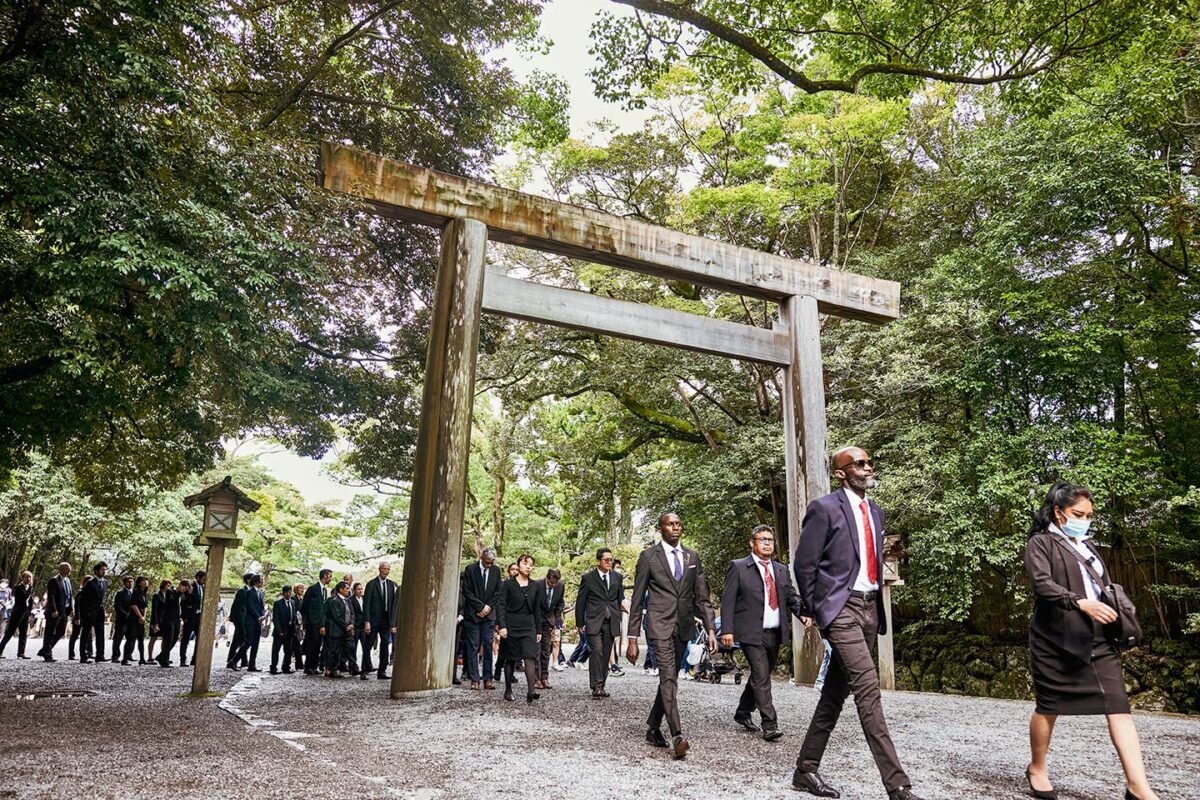
In mid-October, 2022, TYPICA held its first Annual Meeting in Japan, focusing on the theme “SDGs–The start of a sustainable development generation.” The event began with an official visit to Ise Shrine, a symbolic representation of Japan’s spiritual culture and sustainability.
Prior to that, participants had the privilege of listening to a keynote address delivered by Mr. Eiji Hattori. With over two decades of experience at UNESCO headquarters, including positions as the top spokesperson and special adviser to the Director-General, Mr. Hattori shared his insights. Coffee roasters and producers from 22 countries worldwide benefited from simultaneous interpretation in English and Spanish, enabling them to fully engage with Mr. Hattori’s speech.
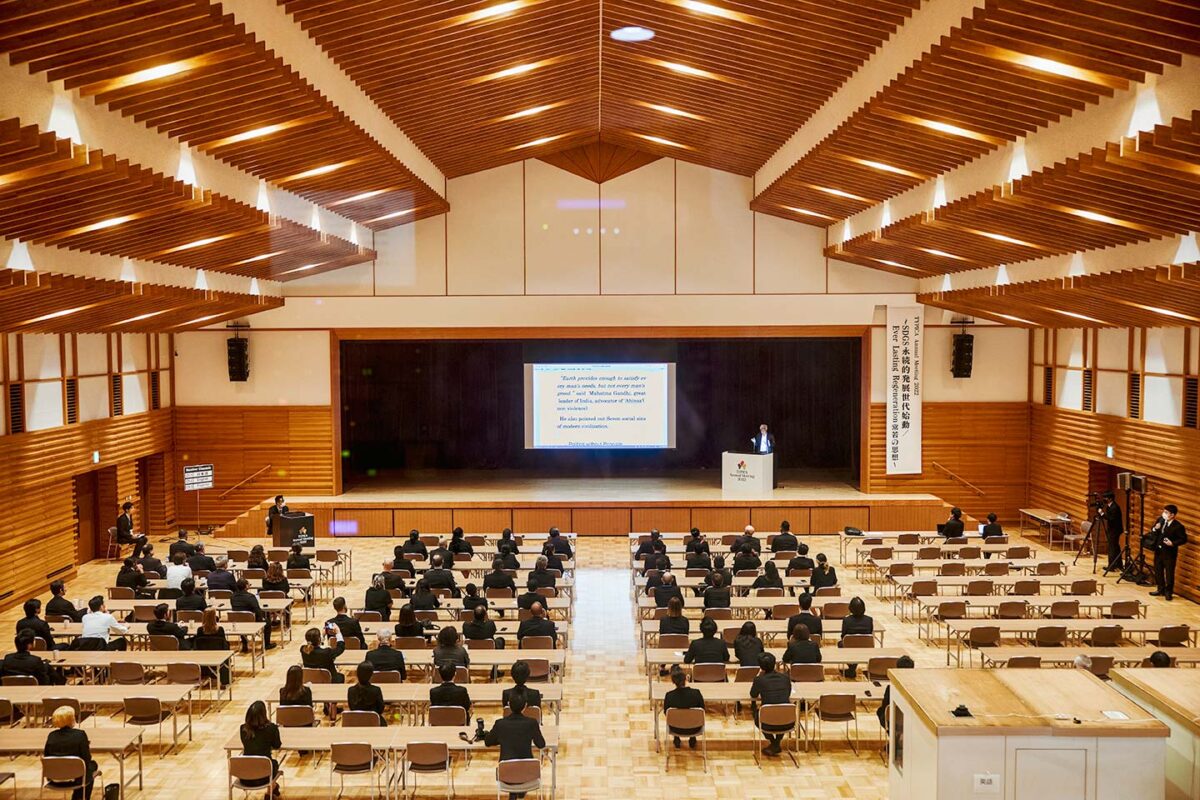
Sustainable development impossible through possession and exploitation
“Man, the child of Mother Earth, would not be able to survive the crime of matricide if he were to commit it. The penalty for this would be self-annihilation” said Arnold J. Toynbee. (“Mankind and Mother Earth”)
We find ourselves today confronted with a crisis that poses a threat to both Mother Earth and the very survival of humankind. It is not a crisis limited to abnormal weather patterns caused by global warming or unprecedented natural disasters, but rather a crisis that strikes at the core of civilization itself. The British intellectual giant, Arnold Toynbee, an author of the great book “A Study of History,” left us with the above words in what seemed like his testamentary document, a poignant warning to us.
Since the birth of our planet 4.6 billion years ago, there have been five instances of mass extinction, triggered primarily by natural disasters such as asteroid impacts. However, we are now on the verge of a sixth mass extinction, and this time, it is not nature but humanity itself that is poised to cause it. I believe this is a consequence of the shifting values within modern society, wherein the emphasis has transitioned from “being” to “having.” An insatiable world of boundless greed arose from market fundamentalism, exploiting Earth’s resources.
The words of Mahatma Gandhi, the revered leader of India, resonate deeply: “Earth provides enough to satisfy every man’s needs, but not every man’s greed.” Gandhi also identified seven major sins that plague contemporary human society, highlighting the path we must rectify:
Politics without Principle
Wealth without Work
Pleasure without Conscience
Knowledge without Character
Commerce without Morality
Science without Humanity
Worship without Sacrifice
These are the seven major sins of humans Gandhi highlights. Alongside the river where he was killed, there stands a monument bearing these very words.
Today, I want to highlight the most significant event in the history of humanity, which gave rise to a society like the one we have today. It is the issue of humanity’s “divorce from nature,” resulting from the scientific revolution of the 17th century.
René Descartes, an economist from France, and Francis Bacon from the United Kingdom, who famously stated “knowledge is power,” were the two leading figures in the scientific revolution. I will concentrate solely on these two individuals.
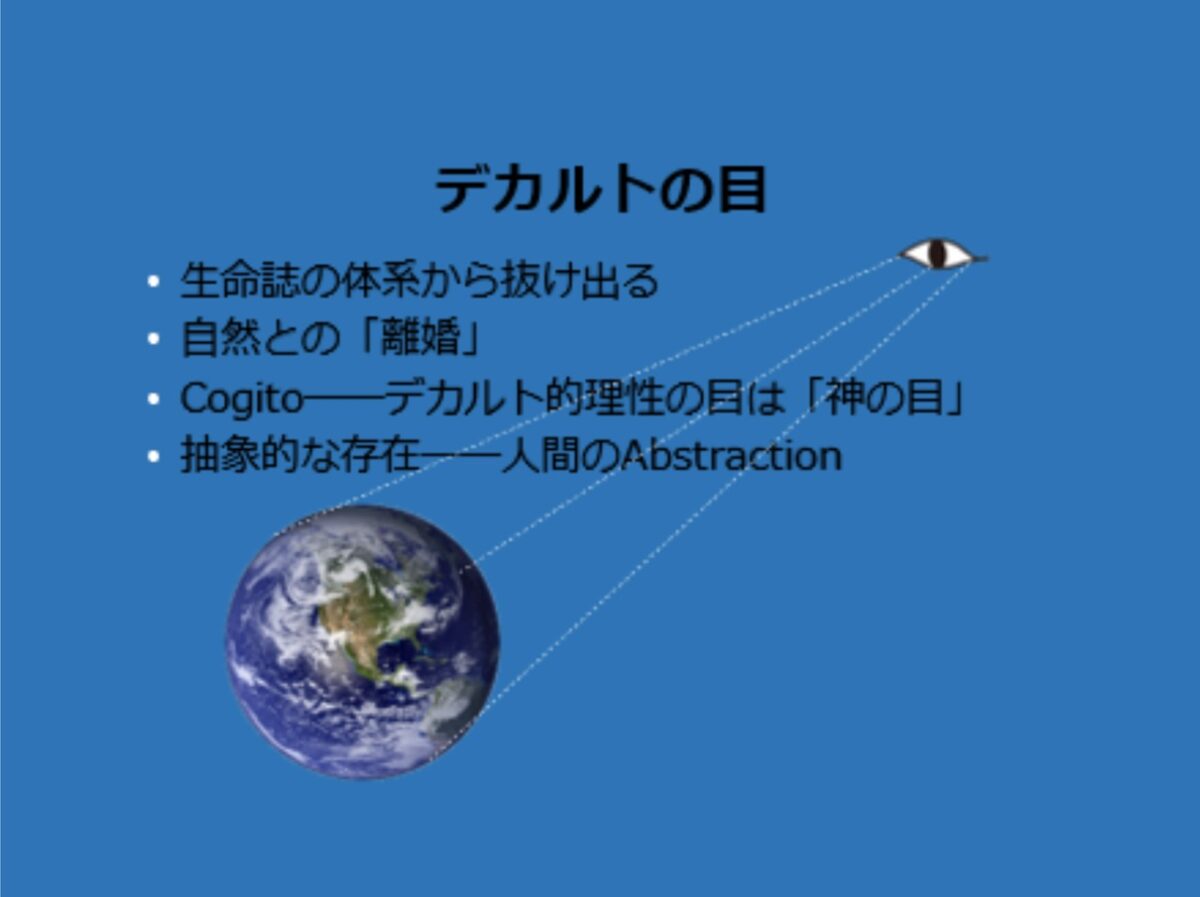
-Divorce from Nature
-Cogito
-Abstraction of Human Beings
The philosophy of Descartes, as illustrated in this diagram, sheds light on an intriguing concept. It portrays a scenario where humans are absent within the Earth, assuming the role of an observer. This newfound objectification of the Earth marks a departure from the subjective self. Descartes’ ego, leaving the narrative of biohistory, embodies a realm of pure rationality and conscious awareness. It is within this context that the notion of divorcing from nature comes into play.
The term “Cogito” refers to Descartes’ famous proposition, “Cogito ergo sum,” which translates to “I think, therefore I am.” This Cartesian perspective of rationality is akin to the omniscient eye of God. In essence, humans themselves become abstract entities, detached from the collective whole. Abstraction, the process of selectively extracting elements from the broader context, manifests in the human experience.
At this juncture, reason assumes the mantle of divinity, prompting a confrontational stance towards nature. The dichotomy between subject and object, subjectivity and objectivity, became pronounced. Mother nature was denatured, as it was regarded as a mere resource. It was no longer perceived as nature but rather a resource that ought to be exploited. Nature became the object of human reason, detached from its original essence.
The duality of existence has undoubtedly fostered the progress of science and technology, propelling material civilization to unprecedented heights. However, this very duality has become a two-edged sword, plunging the Earth’s environment into a precarious state.
Our current civilization can be characterized as a “civilization of having” rather than one rooted in “being.” Having, or possession, entails the acquisition of external elements that are not inherently part of oneself. It involves usurpation and hampers the possibility of sustainable development. Faced with such a critical crisis confronting humanity and Mother Earth, the United Nations has outlined the Sustainable Development Goals (SDGs) as a beacon of hope and redemption.
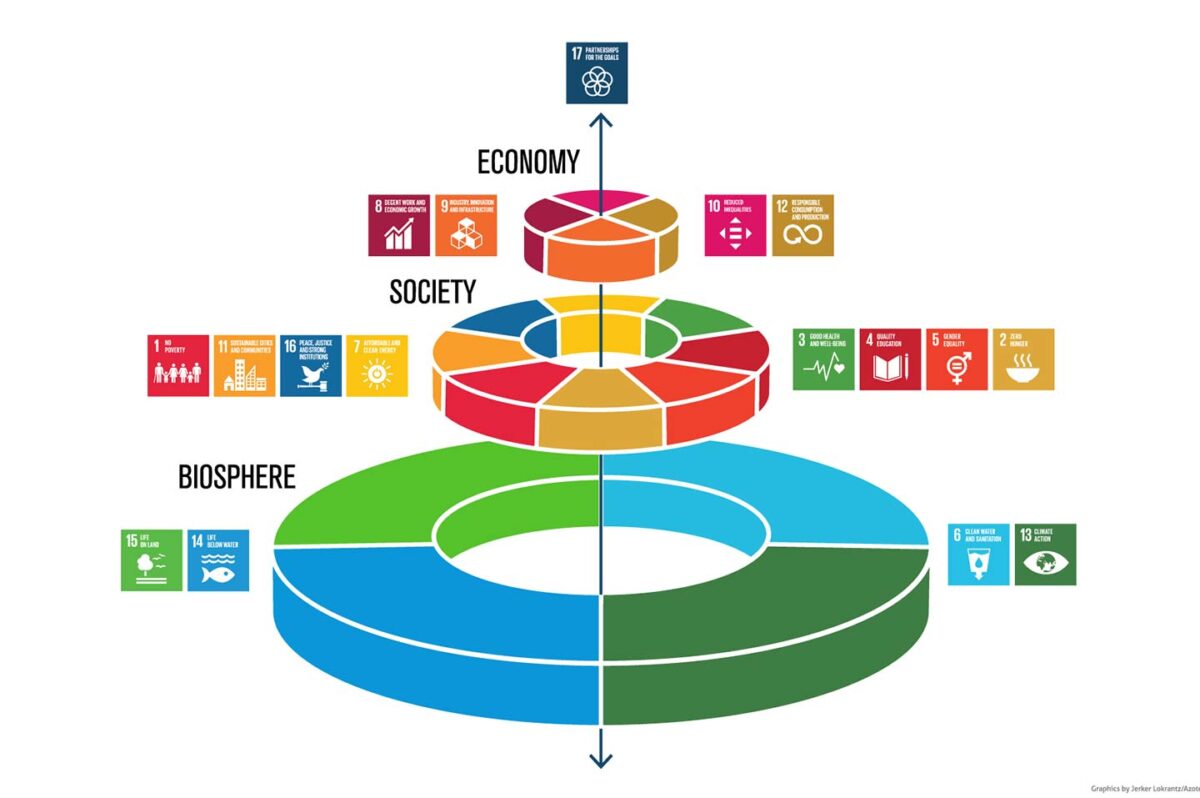
The whole permeates the individual, and the individual resonates within the whole
What are the SDGs? The answer lies right here in the lush greenery of the Ise region. I want you to take a moment to realize this.
Imagine the SDGs as a pyramid with 17 goals, like the one in this diagram. The bottom tier serves as the foundation for the second tier, which in turn supports the third tier. It symbolizes the interdependence and progression of these goals.
Essentially, it all starts with the biosphere, the vast oceans, and the solid ground beneath our feet. Without preserving these fundamental aspects, we cannot achieve our social objectives. And without meeting the social objectives, the pursuit of economic goals becomes challenging.
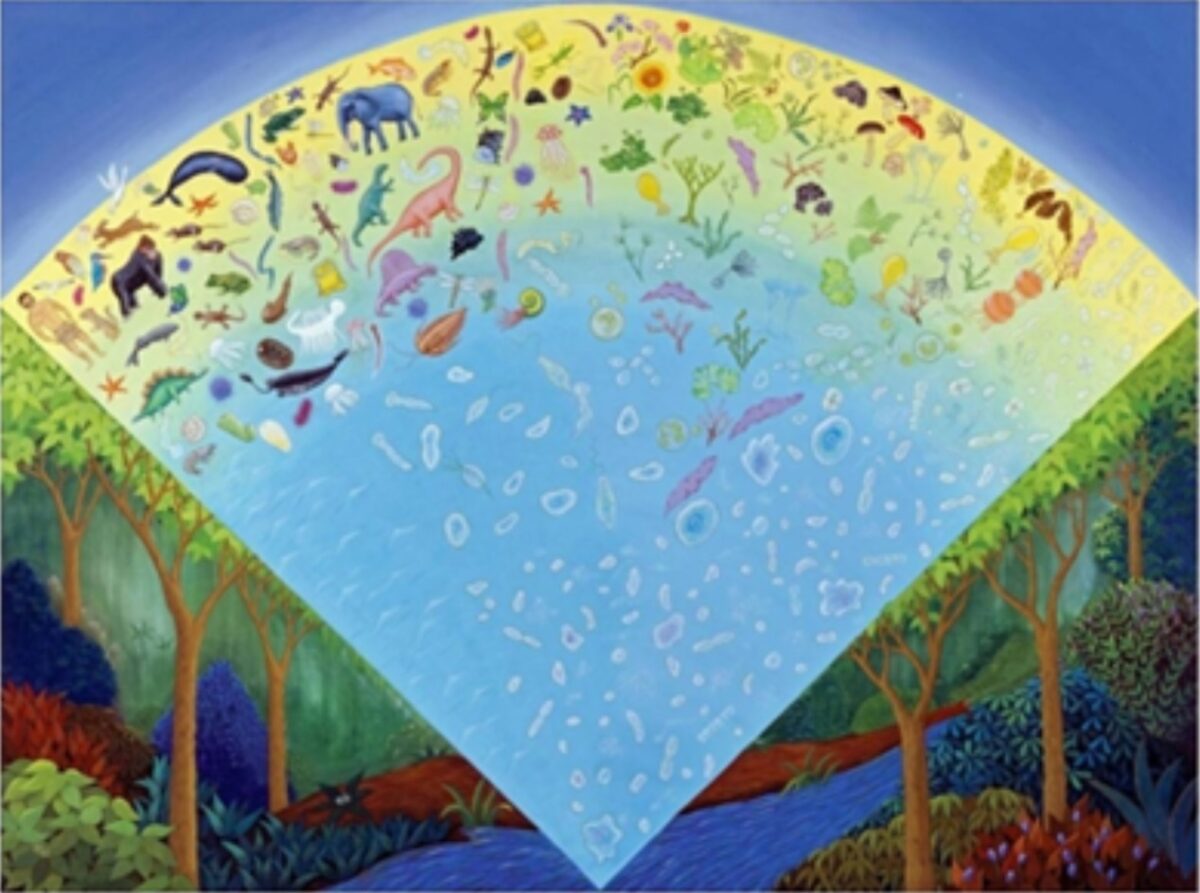
Take a look at this picture. When you visit the Ise region, you can witness a living model of the World of Sustainability. Let’s call it the philosophy of “Tokowaka,” or everlasting regeneration.
Let me share an excerpt from my statement that I submitted for the Group of 7 summit held in the Ise-Shima region in 2006. It encapsulates my thoughts on this matter:
“The mechanistic scientific view that prevailed from the 19th to the 20th century regarded the research subject as separate from the observing rational mind, leading to a narrow concept of progress that fostered a materialistic interpretation of civilization. This has given rise to two opposing ideologies today. On one hand, there is a scientific and technological perspective that sees the globalization of civilization as growth. On the other hand, there is a stance that values cultural identity and strives to preserve diversity. These conflicting ideologies stem from the unfounded misconception that science and cultural traditions are inherently incompatible, divided by an insurmountable chasm.”
It’s worth noting that these sharply contrasting positions have emerged within a relatively brief timeframe of the past 300 years, a mere fraction—1/20,000th—of the tapestry of human history. Humanity has roamed the Earth for around seven million years. In this span of time, the prevailing worldview has shifted significantly since the scientific revolution, distancing Western science from the holistic understanding of nature that had been embraced for ages.
As a consequence of human civilization’s exploitation of our precious Earth, we now find ourselves teetering on the precipice of a crisis. To effectively tackle this challenge, we must transcend the confines of scientific specialization and fragmentation. Instead, we need to uncover a profound global wisdom that unites diverse civilizations and reveals underlying values. This wisdom goes beyond mere ‘Scientia’ (knowledge) and encompasses “Sapientia” (wisdom) in Greek.
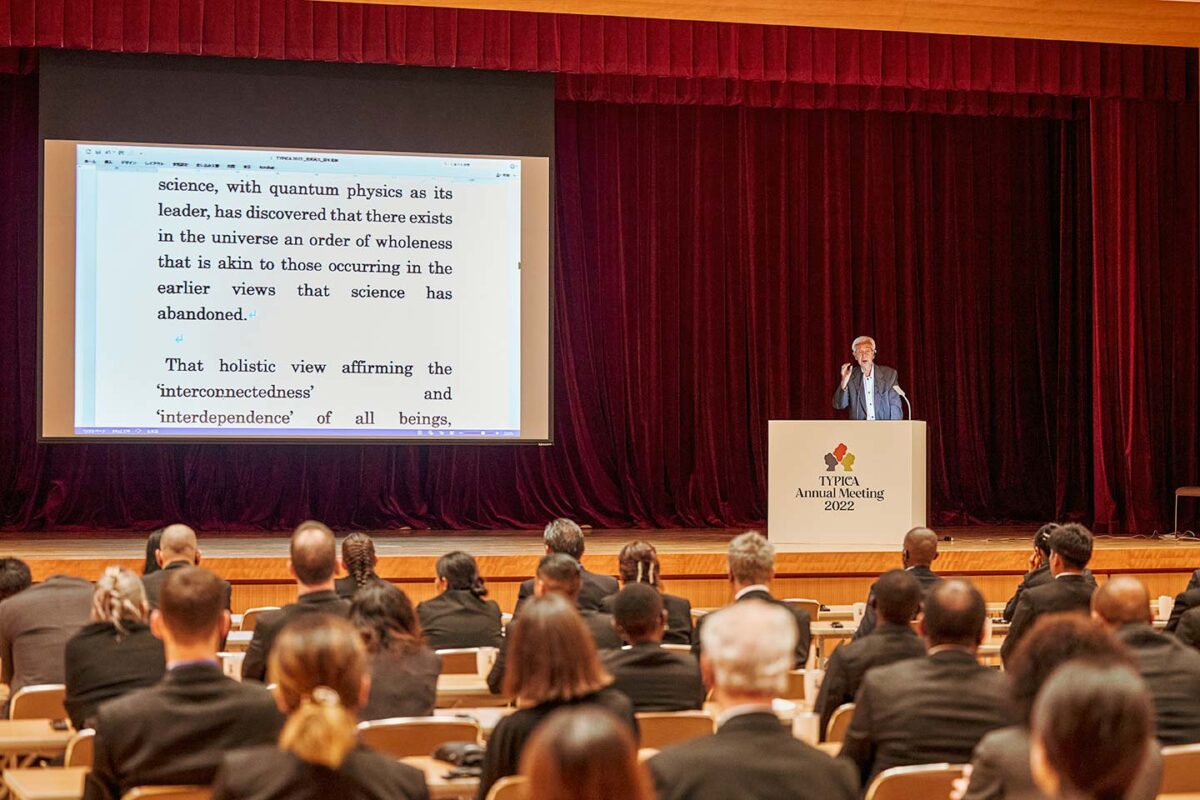
In 1995, I organized the “UNESCO 50th Anniversary Symposium” at the United Nations University in Tokyo, where a remarkable message was adopted. It highlights the convergence of cutting-edge science with the ontology nurtured by our ancestors, which scientism has somewhat neglected. Let me share some excerpts from it.
In recent times, advanced sciences like quantum mechanics have made a remarkable discovery: the existence of a holistic order in the universe that aligns with the cosmological views held by our ancestors, views that science had abandoned. Quantum mechanics, undoubtedly the most pivotal field, introduces a new holistic perspective emphasizing the universal correlation and interdependence. If I may paraphrase, the whole permeates the individual, and the individual resonates within the whole. This captures the essence of the message.
This declaration was drafted by two leading-edge scientists, Henry Stapp and Karl Pribram, during their time in Tokyo. Within this novel ontology, humans are recontextualized as part of Mother Earth, intertwined in an eternal cycle of death and rebirth. It embodies the philosophy of “Tomoiki,” embracing the profound interdependence of all living entities.
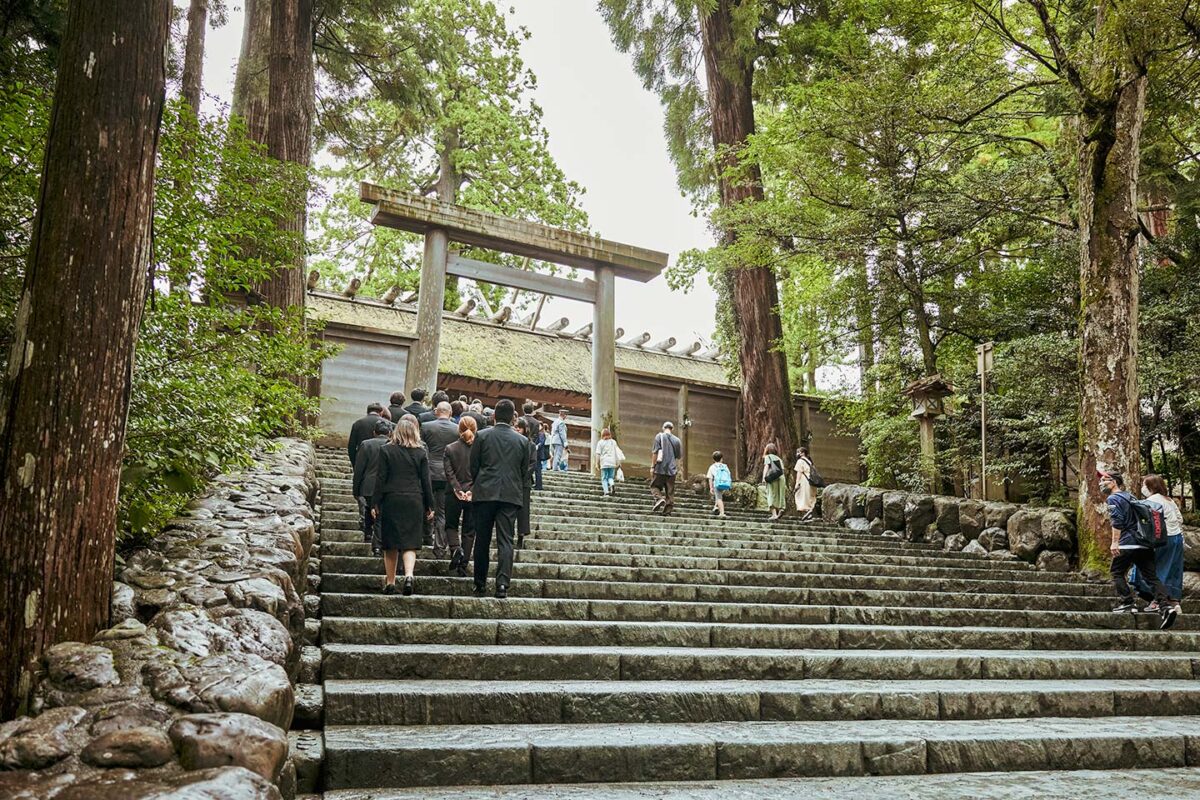
Ise Shrine, an embodiment of sustainability, undergoes a ritual called Shikinen Sengu every 20 years, during which the entire shrine is reconstructed using white wood. This ritual symbolizes the essence of eternal life more than stone or gold. André Malraux, a renowned French writer and philosopher who later became the Minister of Culture, visited this place and left behind these remarkable words:
“More than pyramids and cathedrals, Ise evokes eternity.”
Furthermore, Arnold Toynbee, a notable British scholar, penned his profound sentiments after visiting Ise with his wife, expressing:
“Here, in this holy place, I feel the underlying unity of all religions.”
You all represent diverse cultures from around the world. Therefore, in conclusion, I would like to share an important declaration created by the international community. It originated in the aftermath of the significant event of September 11, 2001, when the Twin Towers in New York collapsed.
In the immediate aftermath of this major event, to everyone’s surprise, the UNESCO General Assembly unanimously adopted the “Universal Declaration on Cultural Diversity.” Representatives from many nations regarded it as a vital declaration, second in importance only to the Declaration of Human Rights. It emphasizes the importance of diversity and the spirit of mutual respect for humanity’s survival. The first article explicitly states:
“Cultural diversity as a source of exchange, innovation, and creativity is as necessary for humankind as biodiversity is for nature. In this sense, it is the common heritage of humanity and should be recognized and affirmed for the benefit of present and future generations.”
Furthermore, the seventh article includes the following memorable quote:
“Creativity draws on the roots of culture and is nurtured by the exchange of knowledge and values among cultures. This interaction takes place within and across national boundaries, contributing to the flourishing of cultures and the development of humankind.”
Thank you.
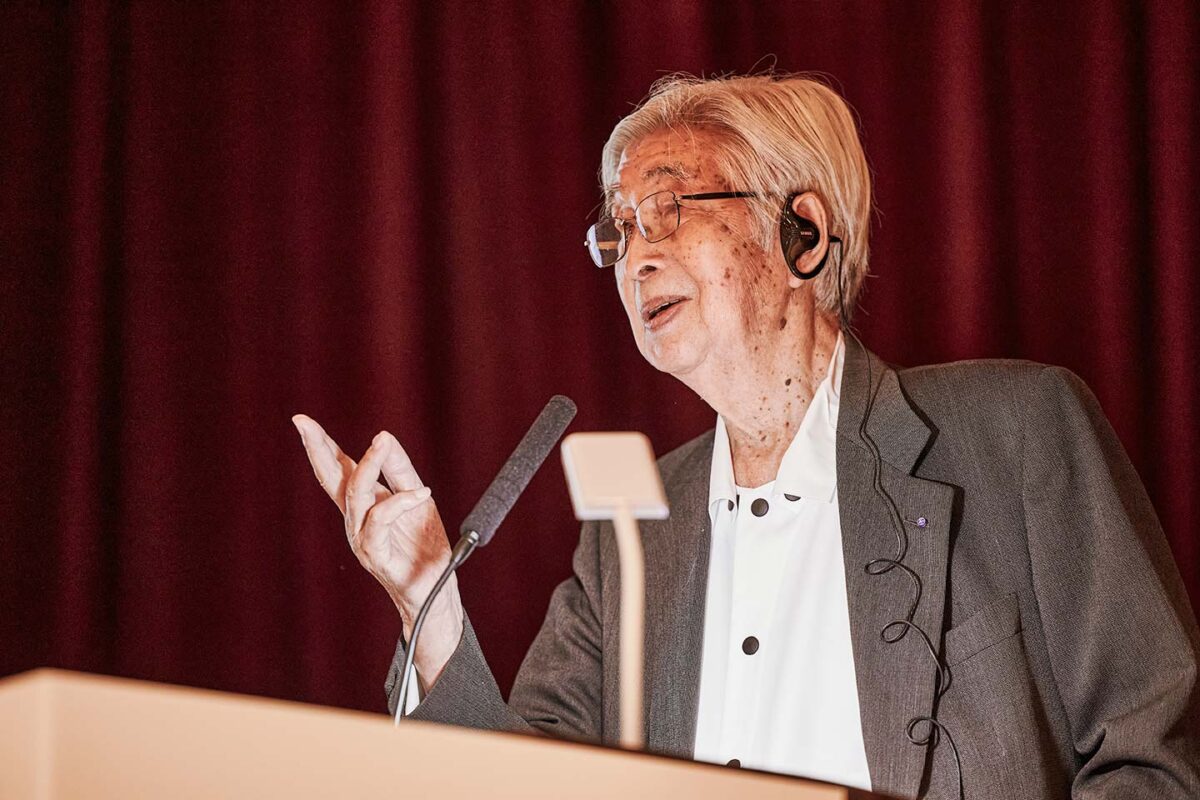
Mutual respect creates rich and beautiful world
Q&A
Abdulrahman: In relation to the concept of quantum thinking and quantum physics, as we are moving towards the technological advancements to a meta verse, what do you think is the fundamental combination between human identity in a world that’s changing into a metaverse giving us more or less this alignment for what you just spoke about. So what is needed for us to stay connected, stay with values and identities given that metaverse and quantum computing are going to be even stronger than what we are used to right now.
Hattori: You made a crucial observation. Quantum mechanics and quantum physics represent a radical departure from traditional physics. In the past, reason remained outside the object, assuming a position of mere observation.
However, in the early 20th century, the advent of quantum mechanics brought about a momentous shift. Within the grand drama of existence, each individual assumes the dual role of observer and player. They are not merely spectators but active participants, according to Berkeley Group in the US.
This notion was succinctly articulated by Niels Bohr and Werner Heisenberg, who introduced the concept of the uncertainty principle. Yet, as I mentioned earlier, classical scientism operated on a binary perspective of existence: either it exists or it doesn’t. Digitalization exemplifies this scientific viewpoint.
Every computer you use operates on a binary system, consisting solely of 0s and 1s. This is due to its reliance on the on/off states of electricity. Even with the emergence of supercomputers like Fugaku, which possess immense computational power, ultimately everything boils down to either 0 or 1.
Currently, the development of quantum computers is underway, which is said to surpass the capabilities of today’s supercomputers by millions of times. When I encountered the equations, I was astounded. Within 0, there exists a 1. It represents the coexistence of existence and non-existence. It’s akin to a state of Zen or the philosophical concepts found in the Flower Garland Sutra. This perspective, rooted in Buddhism that found its way to Japan, surprisingly finds resonance in Europe and Central Asia as well. I harbor a deep sense of concern about the fact that this philosophy emerged from the realm of quantum physics.
However, fear also carries within it a glimmer of hope. Perhaps the emergence of quantum computers will dismantle the binary view of existence that has prevailed until now. From the vantage point of quantum mechanics, each and every one of you, in this very moment, with your thoughts and presence, is catalyzing societal transformation. Even if you represent a fraction of a fraction, your impact is not to be underestimated. Let us embrace and disseminate this philosophy. I believe it intertwines with the philosophy of everlasting regeneration I shared today. Thank you very much.
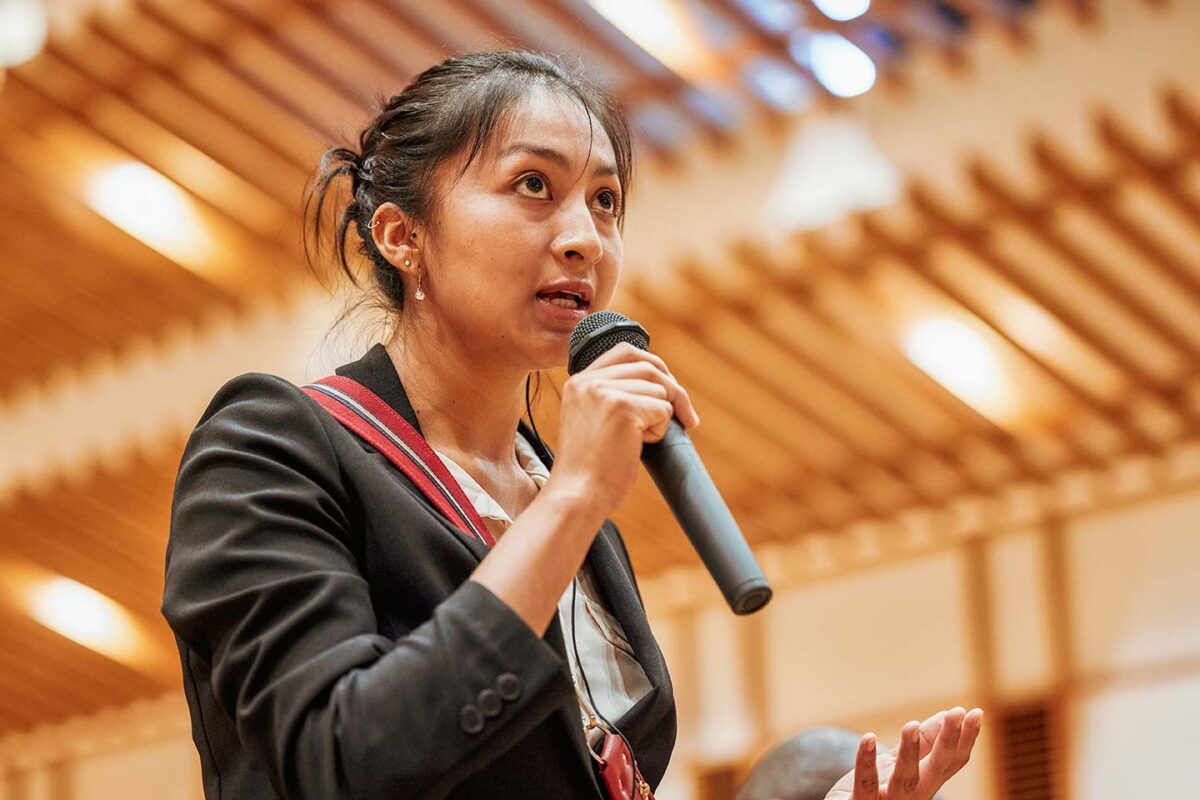
Nassia: Good morning, everyone. I came here with the Bolivian team. Thank you, Mr. Hattori, for your keynote speech. I had a happy realization while listening to your talk.
Just yesterday, I had a chance to discuss a question with all other team members. The question is, what we should do in Bolivia, a country with so many cultures. Thanks to cultural diversity, Bolivia has become the thriving nation it is today. But then, we stopped and wondered if we are really doing our best, and started thinking about how we should live going forward.
Take religion and politics for instance. These two things are major topics that could polarize Bolivia, the topics people would rather avoid because they could easily lead to unnecessary clashes. But to avoid clashes is the same as running away from important discussions. Religion and politics are the foundation of our work, our life, and our very existence.
Listening to your talk and Masa’s speech, I realized how important it is to confront these topics head-on and not be afraid to talk about religion. I realized we must come together and find a way to understand each other, rather than judging people or putting up walls before listening to what they have to say.
Religion is diverse. I’ve always thought we can’t come to a consensus on religion. But there is one religion that’s very universal and uniform. That is, our mother Earth, the home of humanity.
I’ve heard a beautiful saying before. “Water is milk from mother Earth that nurtures us all.” Everyone who’s gathered here today are brothers and sisters. When we drink water, we are all drinking milk from mother Earth.
I hope that people in all countries will understand that religion can also bring us together because religion is also part of mother Earth. Thank you.
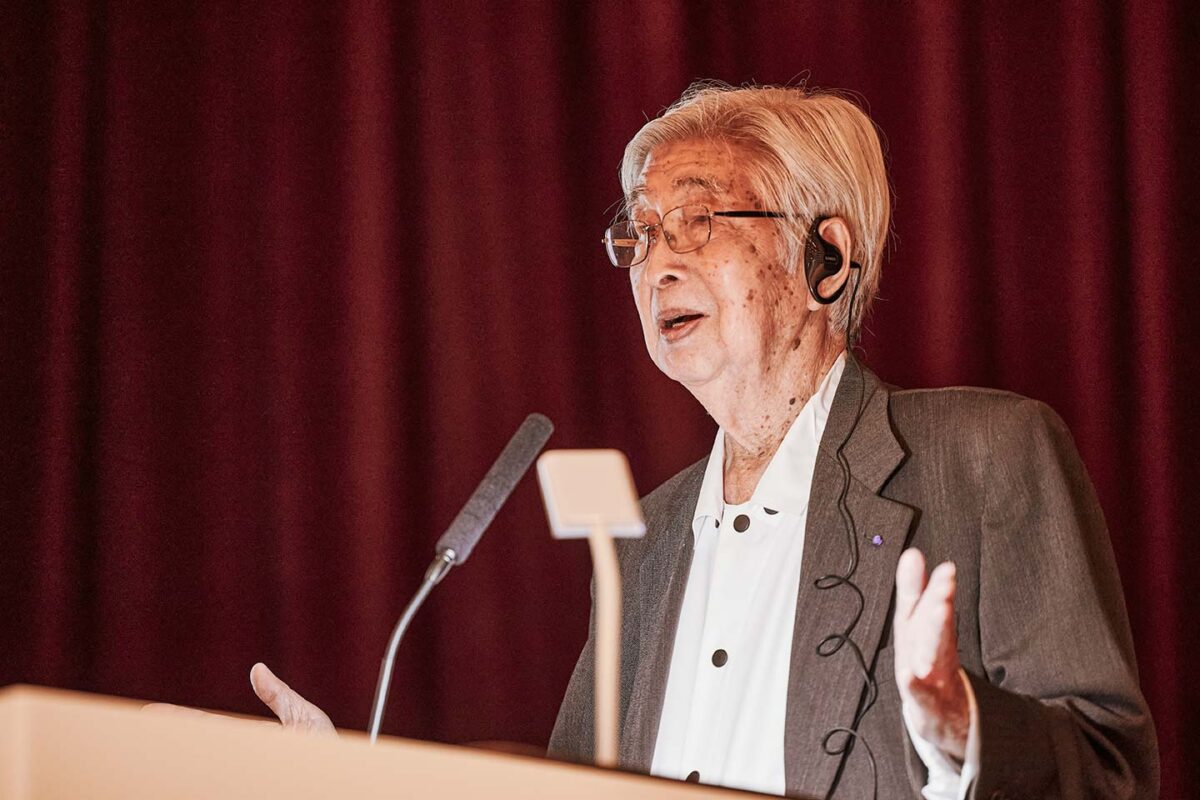
Hattori: Thank you for highlighting an essential point. As I mentioned earlier, every ethnic group possesses its unique tradition. It is imperative that we embrace and show greater respect for these differences.
Since the aftermath of World War II, globalization has been driven by a singular concept. However, pursuing uniformity would lead to humanity’s demise. It is crucial for us to recognize the value of diversity, to mutually thrive, and to introspect on these dynamics within ourselves.
South America, too, was once home to a plethora of cultures. I hold great admiration for the splendid civilization of the Maya. Their cyclical worldview is of immense significance to me. However, I believe that the linear perspective of history has exerted a profound influence on shaping our world.
In the late 20th century, a commemorative foundation was established in the city of Valencia, Spain, to mark the start of the third millennium. When I was invited there, I encountered an individual who shared an exceptionally thought-provoking statement. It was none other than Umberto Eco, an Italian historical writer. His words contained a striking expression that left a lasting impact on me:
“The past 2,000 years of history have surged forward like an arrow. However, it is now necessary to transform the perception of civilization into that of a constellation.”
There was a time when rapid progress, akin to an arrow, seemed favorable, and many countries, including Japan, followed suit. However, this proved to be perilous. It leads to a path of destruction. A civilization that moves swiftly like an arrow eventually meets its demise.
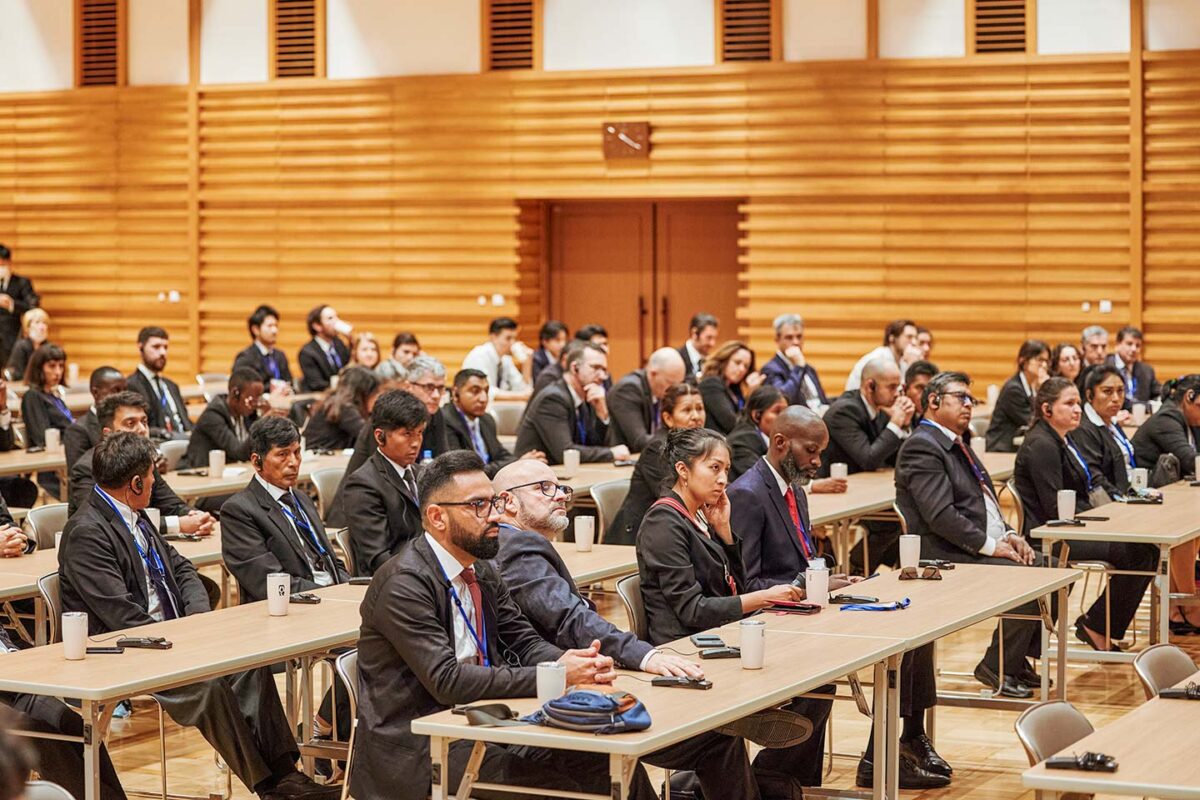
When we think of the historical perspective associated with the imagery of an arrow, the Judeo-Christian view of history comes to mind. Undoubtedly, it is a creation of God, but what lies at the end is the Book of Revelation, as penned by John. In other words, an apocalypse awaits. Eschatology is documented within. But regrettably, many people have overlooked this aspect. They deliberately refrain from acknowledging the presence of an end within their conception of time.
In reality, it is the word of God, as depicted in the biblical narrative of the Garden of Eden. The Heavenly Father created Adam and Eve and bestowed the following words upon them.
“Be fruitful, multiply, and subdue the earth. Rule over the birds in the sky, the fish in the sea, and all living creatures that crawl on the ground.”
People have misinterpreted these words from the Book of Genesis and, as a result, they believe that it is acceptable for humanity to multiply and exert dominion over other creatures. However, this is a grave misconception.
Ironically, those who embraced the ideologies of progressivism and scientism, including the philosophers who spearheaded the scientific revolution in the 17th century, seem to have forgotten that they metaphorically killed the very God they claimed to cite.
In the Garden of Eden, God is a personal deity. It is as if God, with silver hair and a more pronounced beard like mine, converses with humans in their own likeness. However, this image of God ceased to exist in European society around the 17th century.
When Descartes spoke of God, it reduced Him to an infinitely minuscule point. A mere point. Since the 17th century, the God who once walked in the Garden of Eden and communicated with Adam is no longer present. People have collectively forgotten about the God who had a human visage. Or perhaps, they intentionally erased that notion. Amidst all this, it is preposterous, truly comical, for proponents of progressivism to extract God’s words and assert, ‘What we are doing is righteous.’
Thus, I resonate with Umberto Eco’s statement at the Valencia conference that the image of civilization must now be transformed into a constellation. Whether it is in Bolivia, Colombia, Brazil, Mexico, European nations, India, Thailand, Indonesia—mutual respect is paramount. I hold a firm conviction that it will pave the way for a prosperous and splendid world.
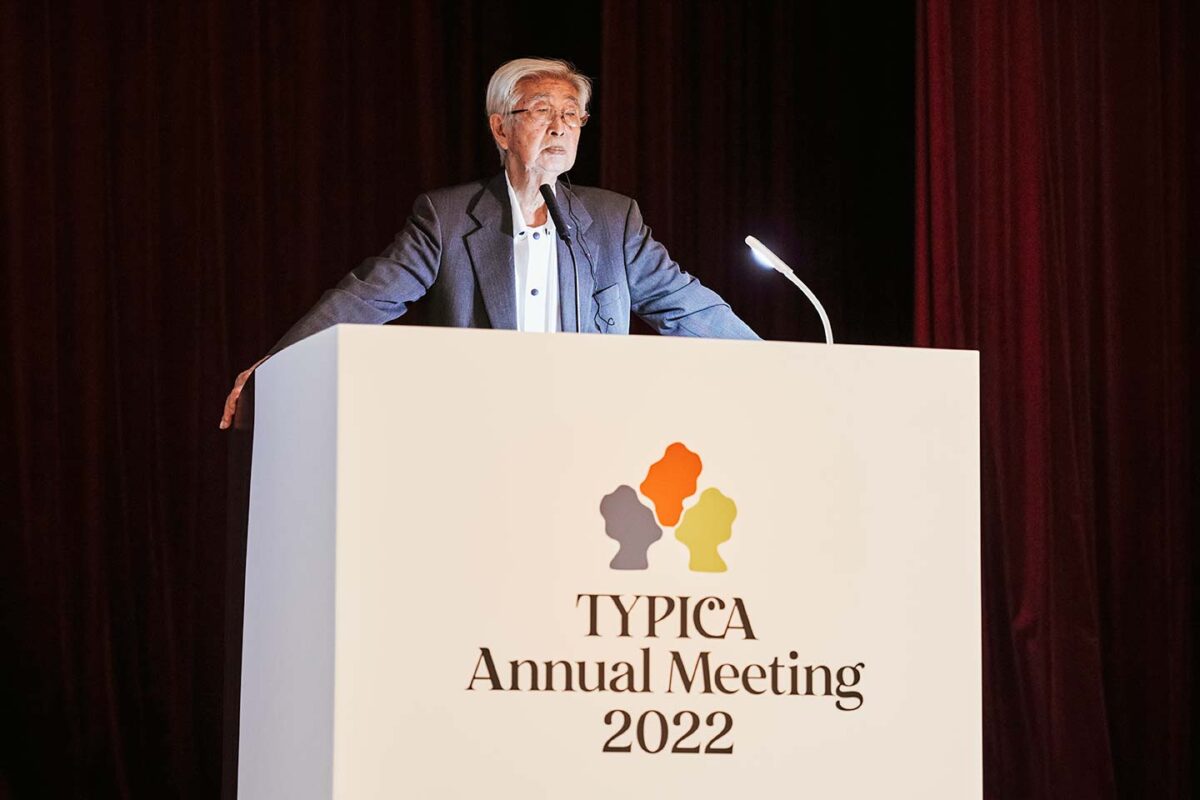
True power lies in citizens’ voices
Yamagiwa: What steps can we take to put into practice the ideology of unity and make the world a better place?
Hattori: Thank you for your question. The Universal Declaration on Cultural Diversity that I cited today holds immense significance. It delves into how we have approached the existence of others thus far.
The hatred directed towards others, fueled by differences, resulted in conflicts primarily rooted in religious disparities during the 20th century, as exemplified in regions like Kosovo and the Ottoman Empire. Such occurrences remained prevalent until recently. It is crucial for us to recognize the pervasiveness of fear and animosity towards others throughout the annals of human history across various nations.
Take, for instance, the Roman Empire that thrived from the 2nd century BC to the 4th century AD. Despite being a colossal empire, its dominion extended beyond the Roman people alone, encompassing regions as far-flung as Central Asia and even Spain.
Nonetheless, these regions constituted provinces, akin to colonies in modern times. However, the people of Rome claimed to grant the inhabitants of the provinces Roman citizenship. In doing so, they condescendingly viewed the provincial population. Treating them as if they were Roman citizens was an act of mercy.
However, the Universal Declaration on Cultural Diversity does not espouse such an approach. Rather than merely tolerating others, it underscores the philosophy that “I am alive because there exist others who differ from us.” It acknowledges the significance of the presence of others. Our existence is intertwined with theirs, and we exist thanks to their existence.
In Africa, this concept is encapsulated by the term Ubuntu. It conveys the idea that “I exist because you exist.” Isn’t it a remarkable expression?
These words are actually written in the Universal Declaration on Cultural Diversity. It emphasizes that others are the very essence of one’s existence, that “I am here because there are others.” It envisions a world characterized by mutual respect.
It is a declaration worth reading in its entirety, and although I highlighted the well-known Article 1 and Article 7 today, the entire document carries significance. In my opinion, it surpasses the Universal Declaration of Human Rights.
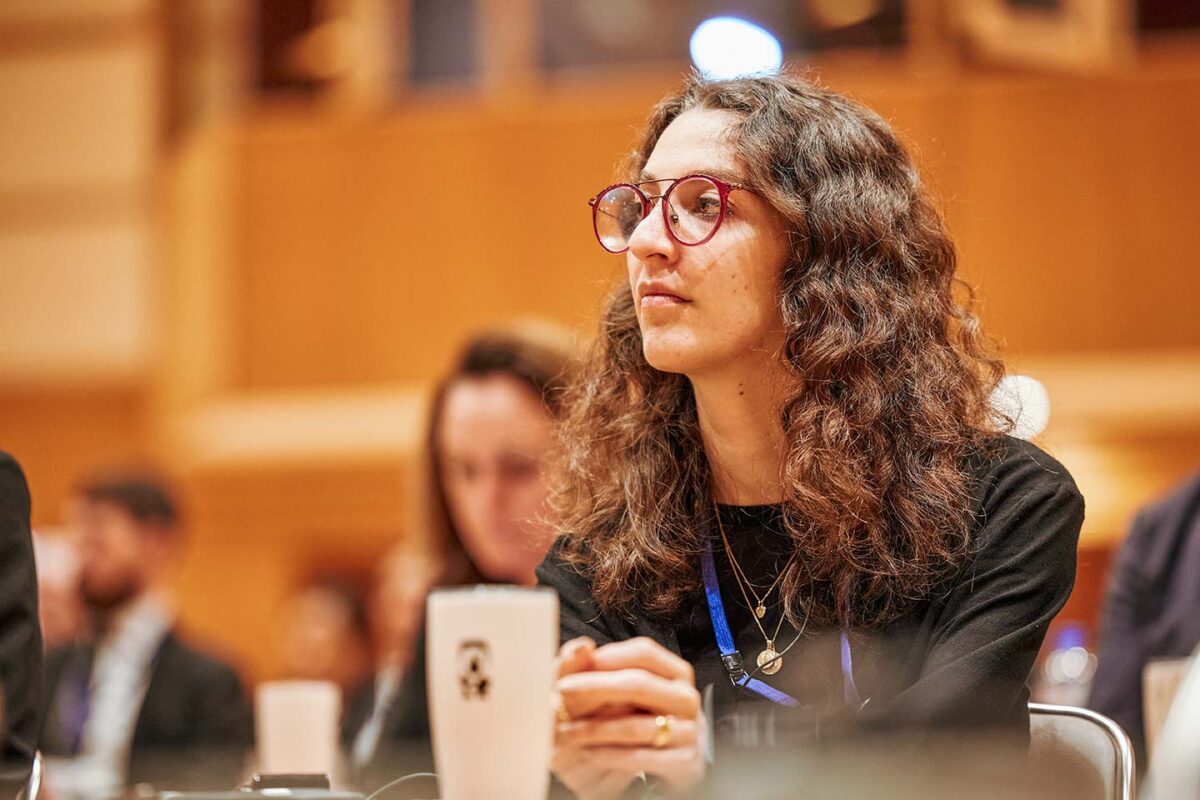
In 2001, after the September 11 attacks, the then US President, George W. Bush, promptly concluded that it was an act of terrorism by Al-Qaeda. However, Afghanistan had no involvement in those events. Afghan individuals did not participate in the terrorist attack on New York’s Twin Towers. The majority of those involved were Saudi Arabians, associates of Osama bin Laden, with the addition of Egyptians. Nevertheless, instead of targeting Saudi Arabia or Egypt, the United States launched an attack on Afghanistan.
How can we transition from such a time of hatred? President Bush made an incredible statement in his September speech.
“Either you’re with us, or you’re with the terrorists.”
Bush presented the world with the dichotomous ultimatum. However, merely a month and a half later, the aforementioned declaration on cultural diversity, advocating for the appreciation of differences and acknowledging that our existence is tied to others, was adopted in Paris. Furthermore, it was adopted unanimously. It demonstrates the existence of sensible individuals in the world. Developed nations also rallied behind it in unison.
So, what was the stance of the US? Actually, the country had withdrawn from UNESCO in 1984, denouncing its politicization. Hence the unanimous vote for the declaration.
France and Canada took the lead in promoting this declaration and started the movement to transform the non-binding declaration into an international treaty. However, Bush expressed concern, stating, “We are not part of UNESCO. It would pose significant challenges if it were to become an international treaty.” Consequently, the US rejoined UNESCO in 2003.
Nevertheless, the fact that every country except the US supported this declaration signifies a momentous event and a significant accomplishment for UNESCO.
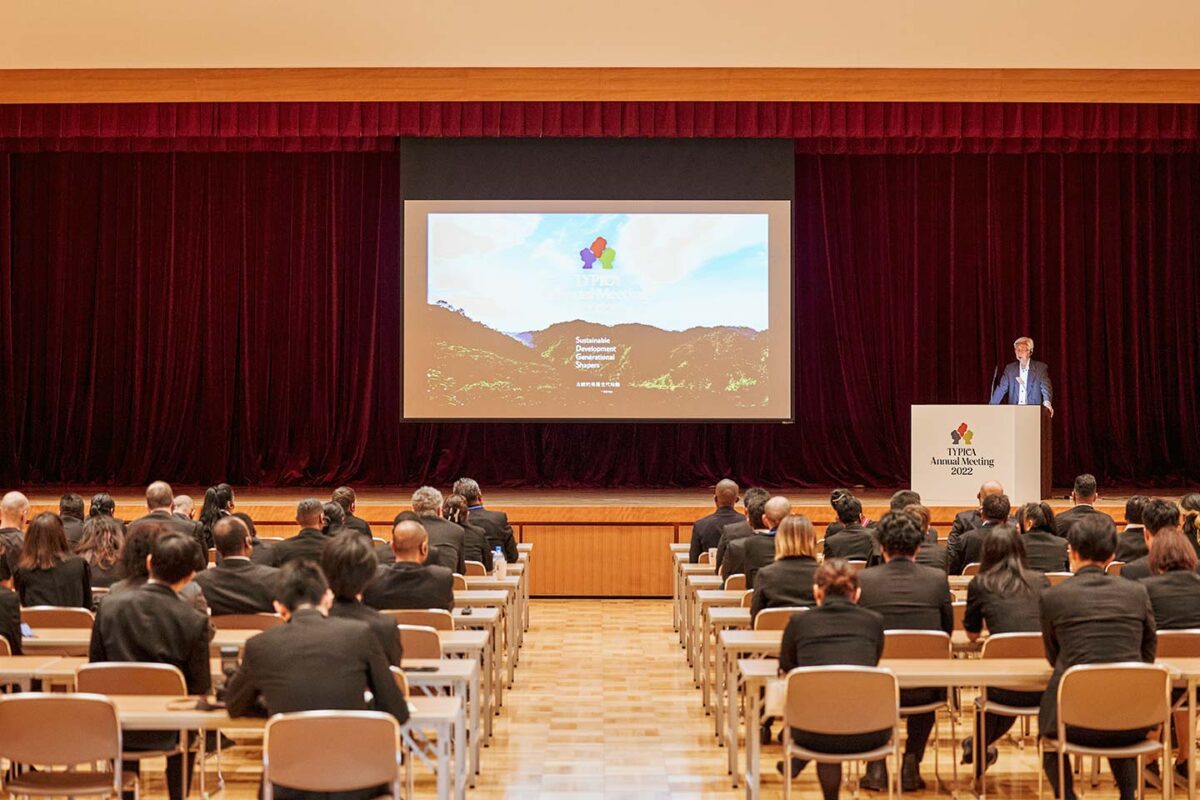
Furthermore, in 1995, I spearheaded a grand symposium as part of UNESCO’s 50th anniversary commemoration. Japan, along with the Ministry of Foreign Affairs and the Ministry of Education, collaborated on this mobilization. We extended invitations to two keynote speakers for this symposium. Representing Japan, we had Kenzaburo Oe, who held great prominence as he had been bestowed the Nobel Prize in Literature the previous year.
However, there was one more person everyone wanted to invite as a keynote speaker. It was Jacques-Yves Cousteau, the renowned scientist who won an Academy Award for his film “The Silent World” and explored not only the world’s oceans but also its lands. Carrying the weight of various voices urging me, I brought Cousteau to Tokyo. It was his testimony at the United Nations University that served as the foundation for the Universal Declaration on Cultural Diversity.
Cousteau made a declaration, stating, “Future generations are not limited to the children and grandchildren of those present here. It is the children of generations further ahead who have the right to enjoy a beautiful Earth.” He penned five articles, and this declaration garnered eight million signatures worldwide.
Now, here’s an intriguing anecdote. Upon arriving in Tokyo, Cousteau immediately requested that I arrange a private meeting between him and UNESCO Director-General Mayol. However, both of them had tight schedules. Consequently, I scheduled a breakfast meeting in Mayol’s room, and it yielded significant results.
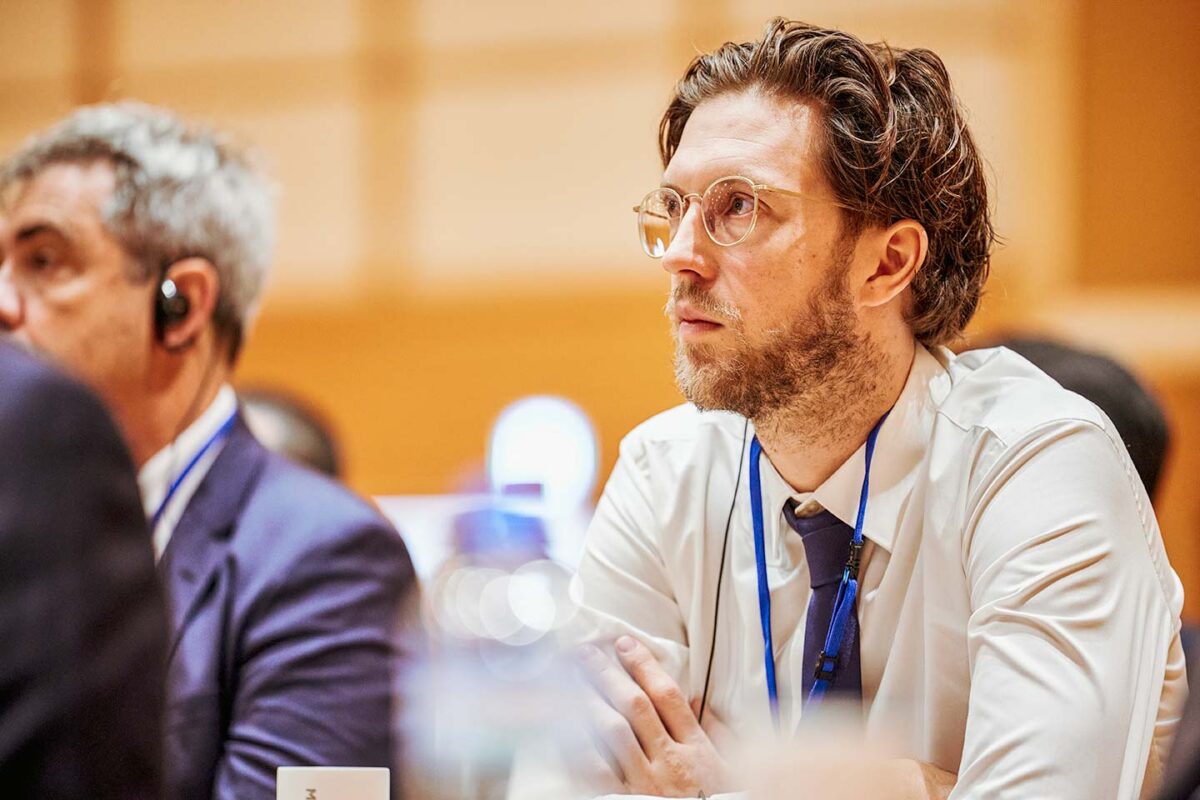
Furthermore, in 1995, President Chirac of France, who can be considered Jacques-Yves Cousteau’s very close ally, established the “French National Commission on the Rights of Future Generations” in support of Cousteau’s idea of “rights of future generations.” Naturally, Cousteau assumed the role of chairman for that commission.
However, in the New Year of 2001, France conducted ten nuclear tests at Mururoa Atoll. They hastily carried out these tests just before the Comprehensive Nuclear-Test-Ban Treaty was about to take effect.
In response, Cousteau, who had his own one-hour television program, vehemently condemned these tests in a live broadcast. As a Frenchman, he declared, “France’s decision is outrageous.” At that moment, while condemning the nuclear tests, he also announced his resignation from all the positions bestowed upon him by the French government as a protest against France and his ally, Chirac. As a result, the commission devoted to the rights of future generations, which he deeply cherished, ceased to exist.
Following that, when Cousteau asked Mayol, “Could UNESCO become the secretariat for the International Commission on the Rights of Future Generations that we are going to establish?” Mayol made an immediate decision and replied, “Yes, we’ll do it.” Once Mayol returned to Paris, he summoned the Director of UNESCO’s MAB (Man and the Biosphere) program and gave him a direct order, saying, “Establish the International Commission on the Rights of Future Generations.”
As a result, another declaration was adopted at the UNESCO General Conference in October 1997. It was called the “Declaration on Responsibilities of the Present Generations Towards Future Generations.” This declaration emphasized that the present generation must make efforts to realize the shared objective of a sustainable and beautiful Earth for future generations. However, it is highly unfortunate that Cousteau passed away three months before the adoption of this declaration.
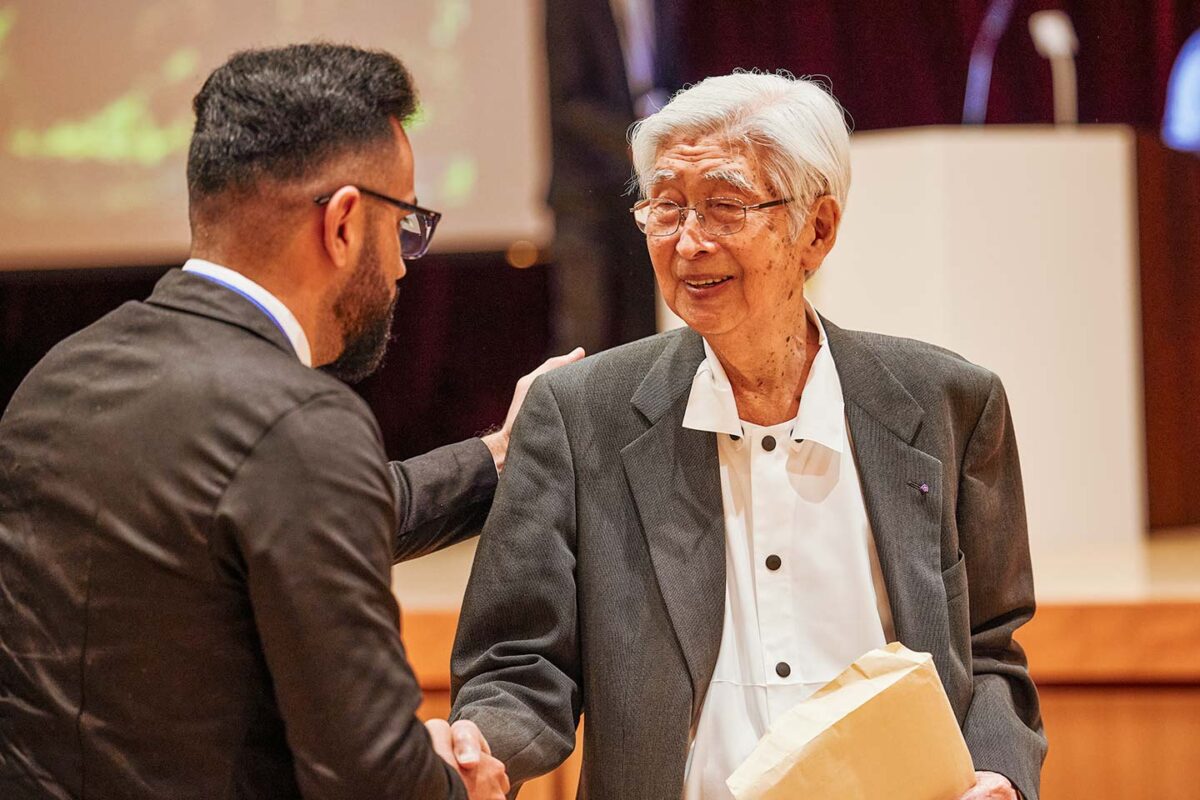
There have been incredibly dramatic developments like this. There are many people in different countries, including Europe and America, who support and take action for the rights of future generations.
I continue to hold the belief that the true strength lies in the voices of ordinary citizens. Given your exposure to diverse world cultures, each one of you has the potential to become a leader, capable of making even the slightest difference in the world. Ultimately, the worth of a country is not determined by its size.
Rather than viewing other civilizations from a superior standpoint, I firmly believe in the significance of mutual respect, treating even the cultures of smaller countries as equals. I encourage you to adopt an attitude where you personally visit those countries, walk on their soil, see through your own eyes, and think critically with your own mind.